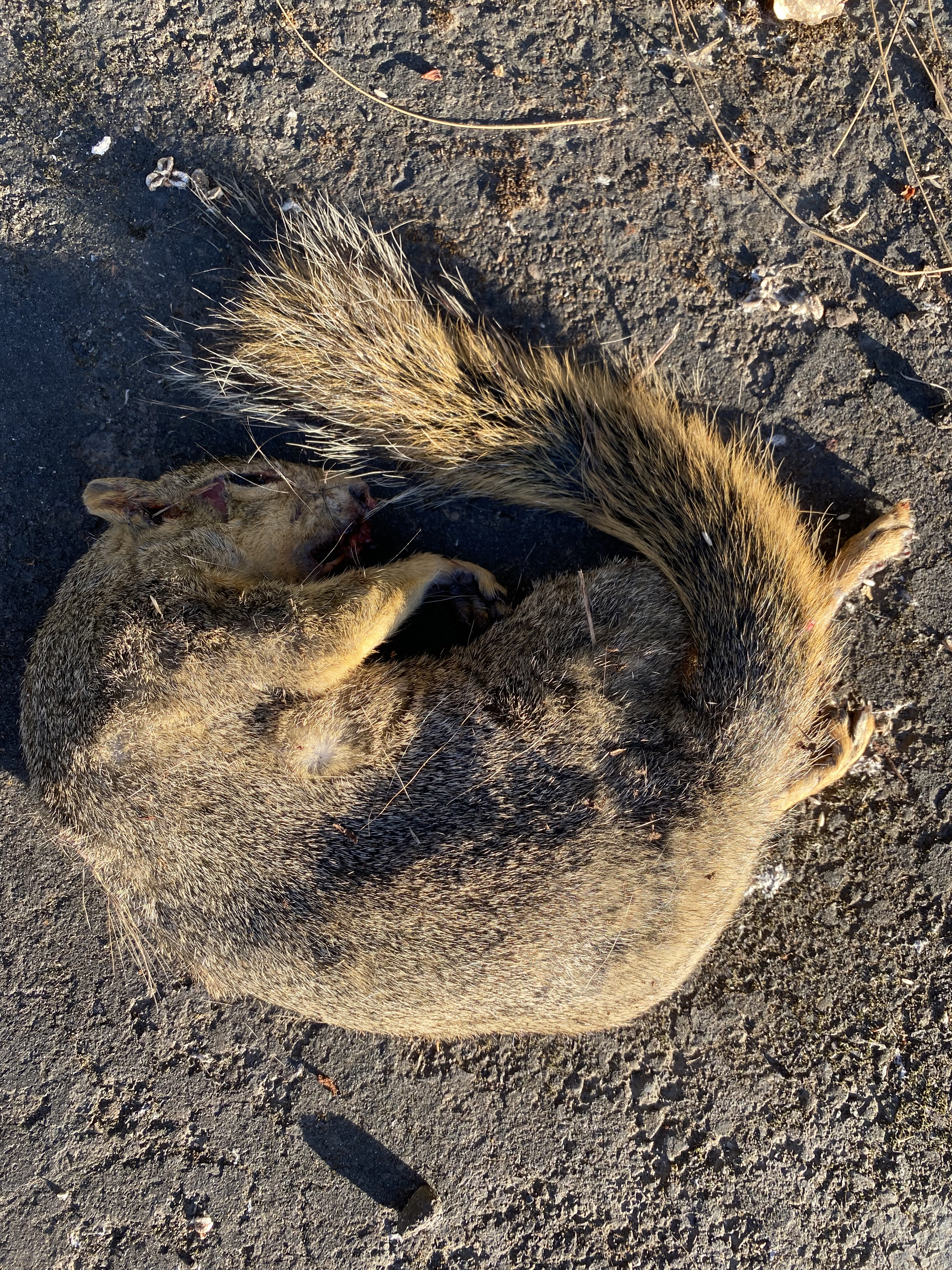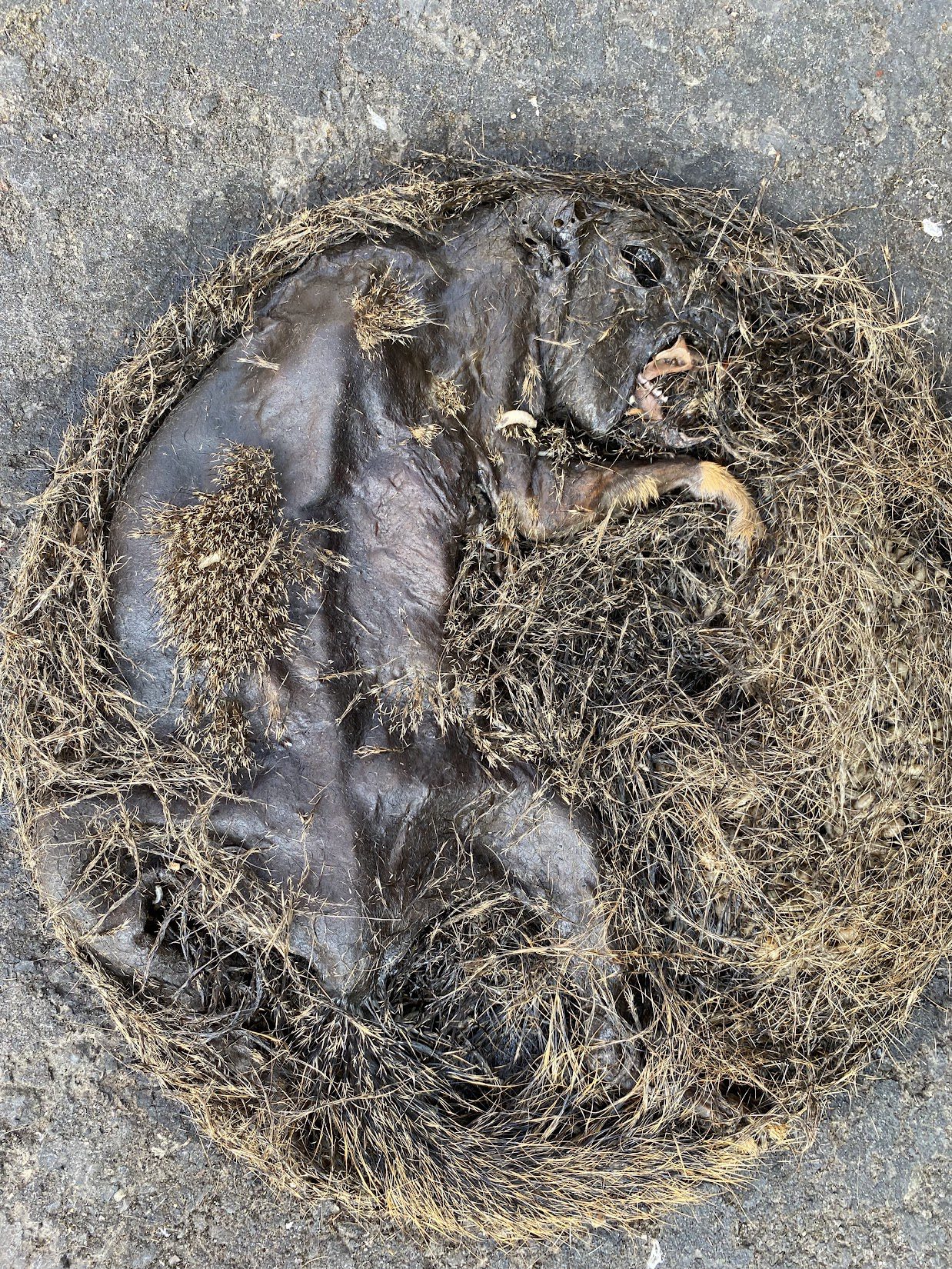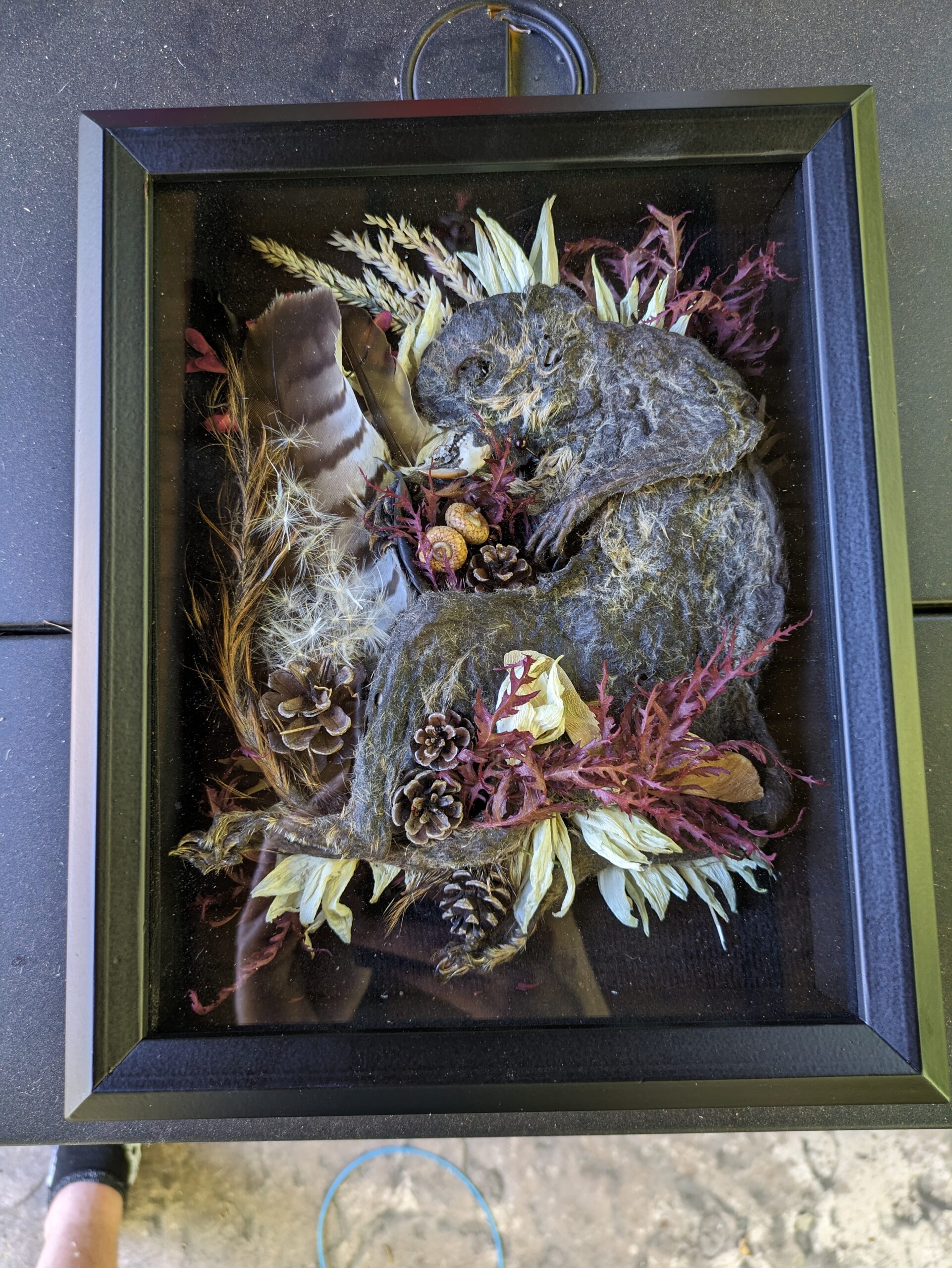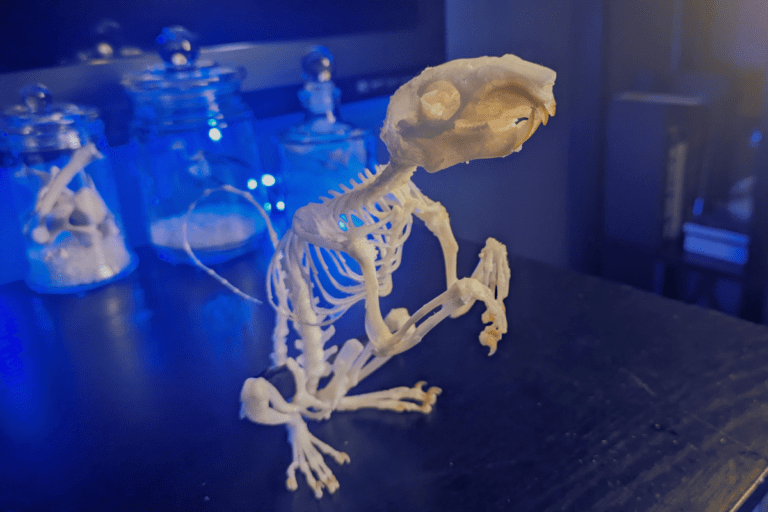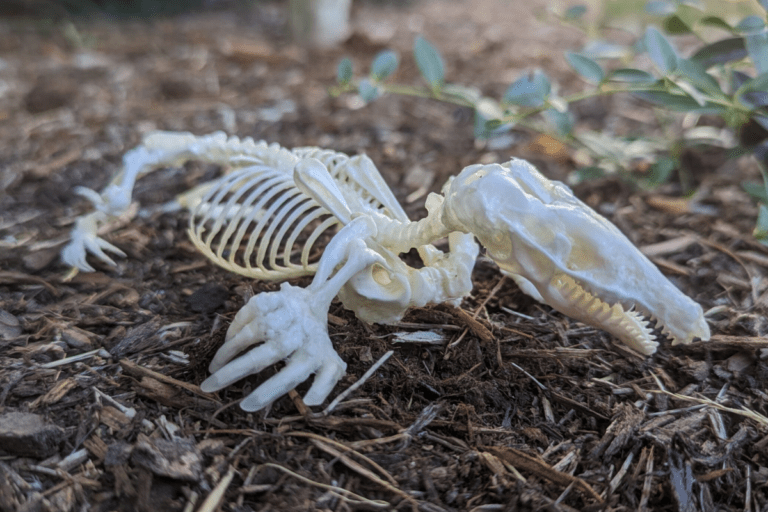My First Experiment with Roadkill
[CW: graphic images in this post]
Like any amateur taxidermist, I have a shortlist of specimens I am especially excited to get my hands on. For a long time, squirrels were on that list, so you can imagine my excitement when I finally found one lying in the road – right in front of my house!
This was not the first time I had encountered a squirrel victim of modern human life, however it was the first time I encountered on that I was in a position to collect in addition to not being completely destroyed by their demise. While this one was still in okay shape, the skull and several other bones had clearly been severely damaged in the accident.
That, paired with the fact that I wanted to try a new bone cleaning method I had read about, led me to attempt the above-ground natural decay method (or the flower pot method, as I like to call it).
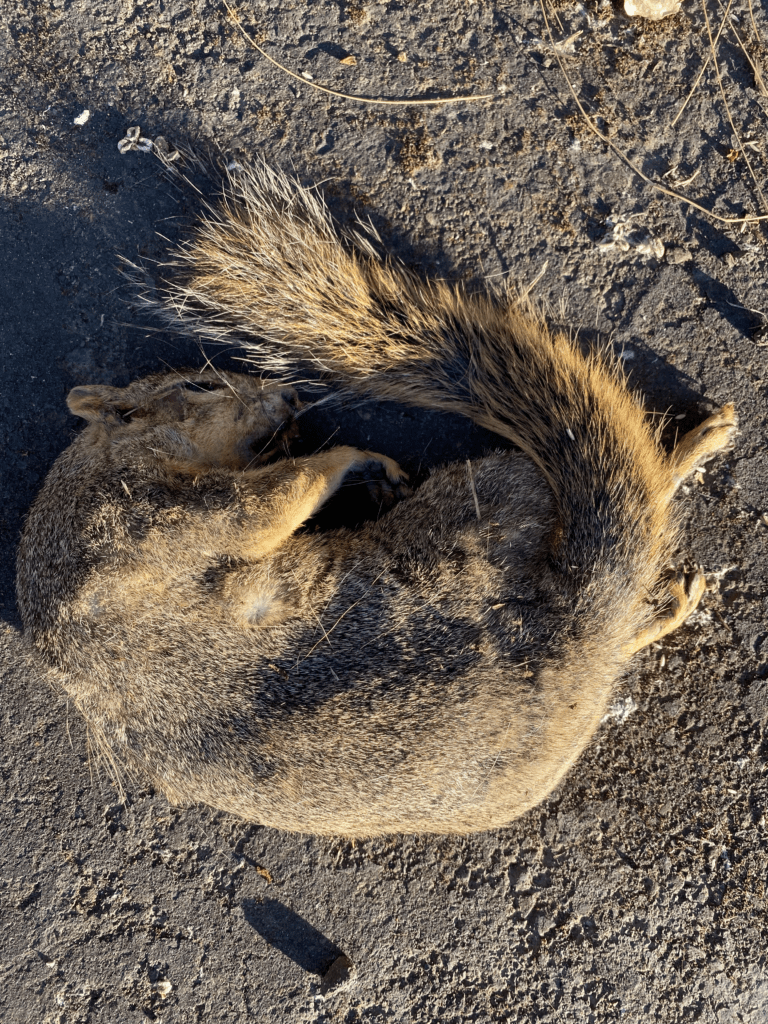
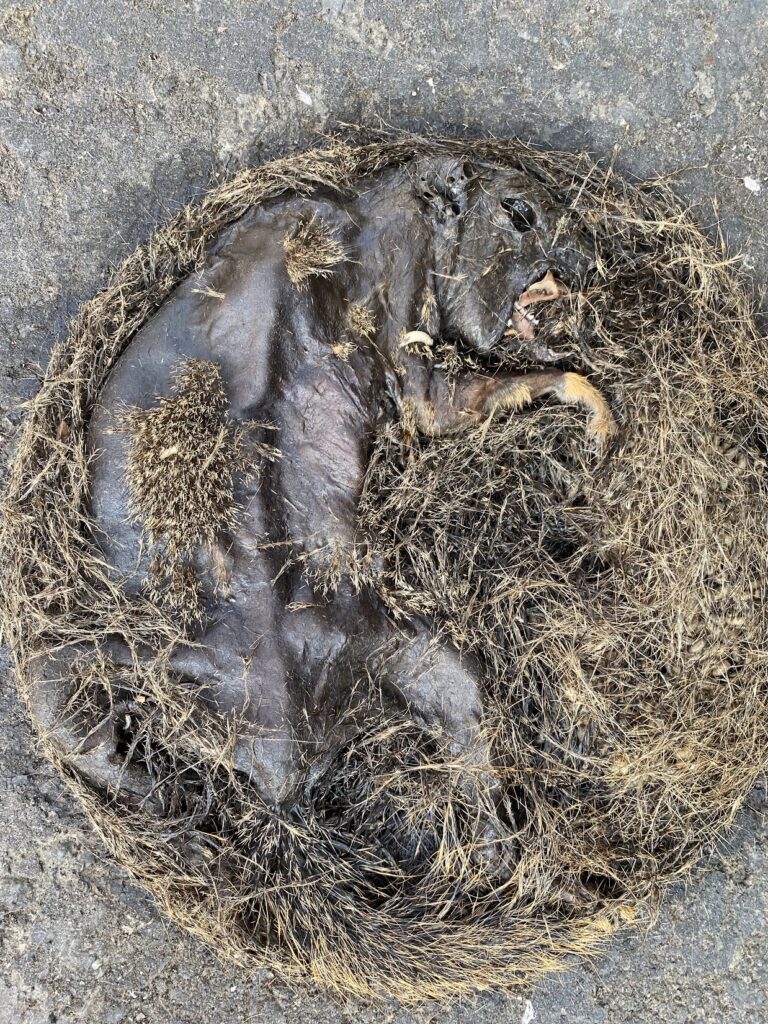
Trying the “Flower Pot” Cleaning Method
Essentially this approach entails placing the body under a weighted flower pot or any containment device that permits air and insects access to the body while preventing nocturnal scavengers from stealing it away.
After a few weeks or months, depending on size and weather conditions, you *should* have a mostly cleaned skeleton ready for touch-up cleaning and articulation. I have seen good success with the foraged bones found from unprotected bodies out in nature, but I have never tried to replicate these conditions myself.
Note that I did this during the height of summer in Oregon, and I did it on asphalt in the hopes on not losing any tiny bones. This turned out to be a mistake, if cleaned bones are indeed the desired end goal.
After a couple weeks, I found that the fur had sloughed off and the fluids had all leaked out, pooled, and congealed. The skin and remaining flesh had dried out and was shrink wrapping the skeleton in hard leather. What little moist flesh remained was being feasted upon by a multitude of maggots.
Making the Most of a Failed Attempt
As a bonus at this point I also snagged a few choice maggots for my budding wet specimen collection. Apparently for soft insect specimen display, you can kill and prepare them by adding them to boiling water and letting them sit for 5 minutes. Then a quick rinse and transfer to alcohol, and snap! You’ve got a jar of preserved maggots!
It was clear at this point that my attempt at skeleton cleaning had failed. I was now most of the way to a mummified squirrel, and course correcting at this point would be difficult. Since I enjoy a good mummy as much as the next hume, I decided to go with it.
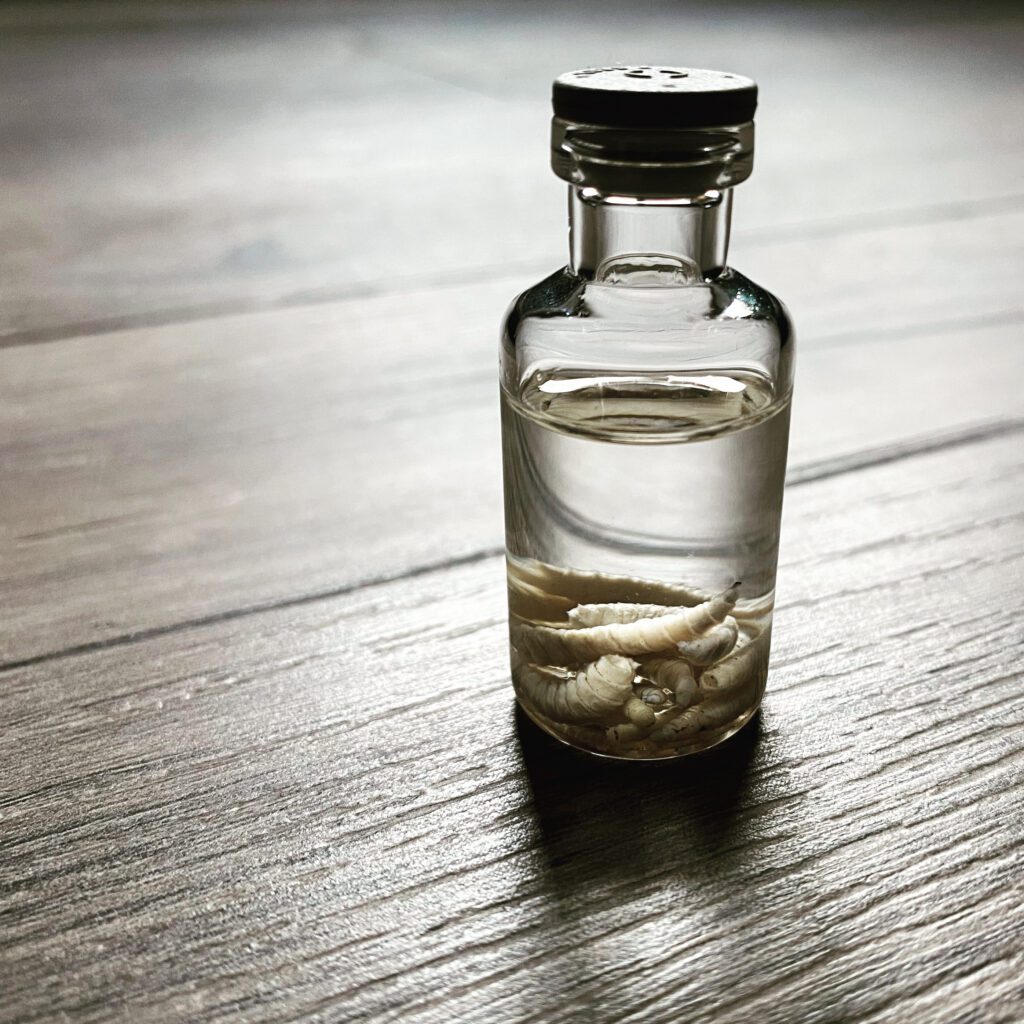
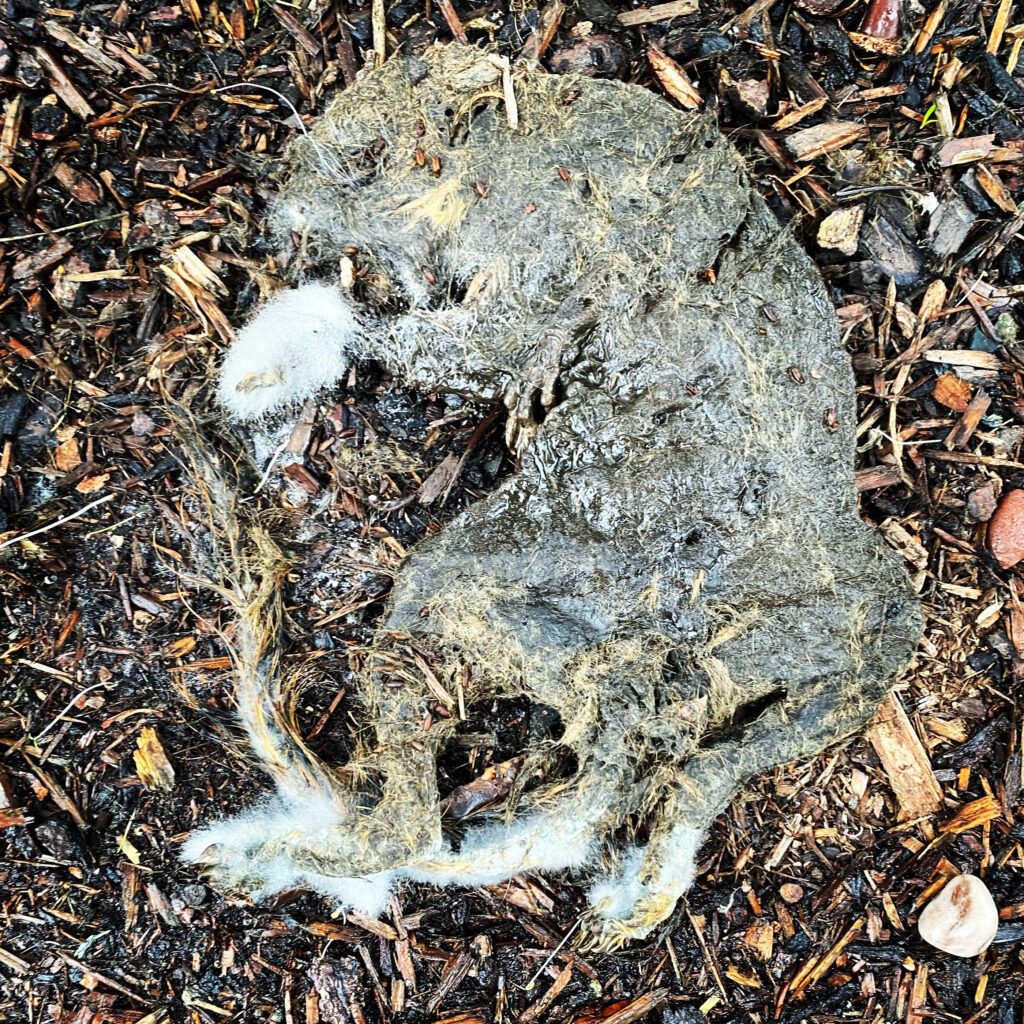
I went ahead and cleaned up the discarded fur and moved the mummy to a new spot to see if I could get a little more degradation before considering him done. It was of course around this time that the weather turned and dropped a few days of summer rain on us. Apparently mummified squirrel feet in the damp darkness is just too delicious for mold to pass up on, and I discovered the worst Santa costume the next time I checked.
With more rain in the forecast, I decided this was a good time to start letting him dry out and settle. I picked all the insects I could find out of the leathery skin before transferring him to my garage to begin curing.
Laid to Rest with a Treasure of Nuts and Nature
The mummy ended up curing in my garage for the better part of six months, just to make sure everything was completely dry and no bugs had hatched or otherwise made their presence known.
In the meantime, I had made a project of collecting any interesting or pretty bits of nature while on walks with my dogs. Over a few months, I collected a variety of summer foliage to decorate the mummy with in his final after life resting place: a shadowbox where I could display him in all his splendor.
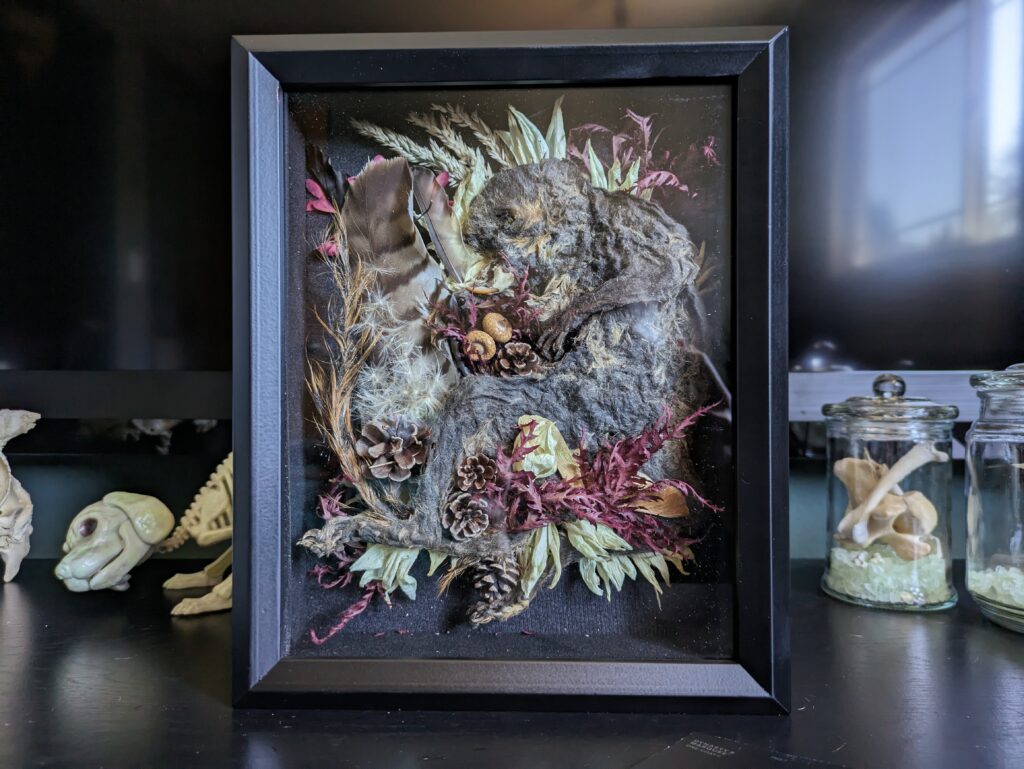
I do not fear death. I had been dead for billions and billions of years before I was born, and had not suffered the slightest inconvenience from it.
Mark Twain

